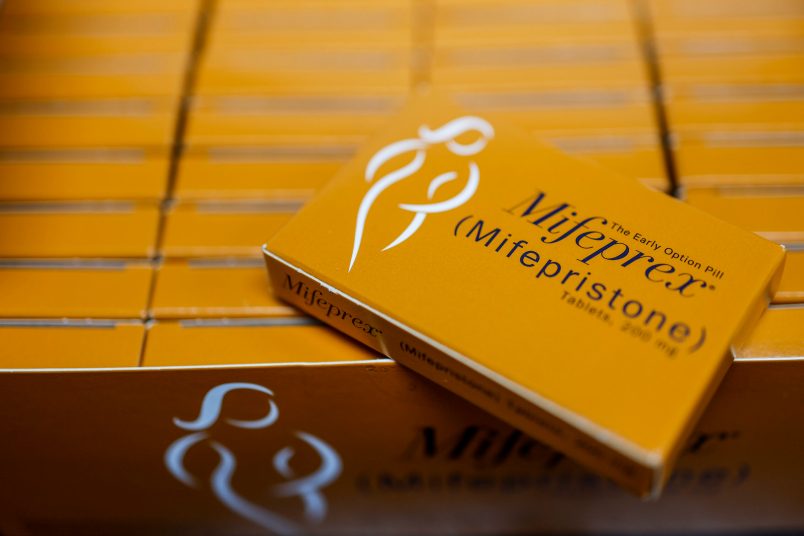The anti-abortion doctors who first brought the case seeking to get mifepristone yanked from the markets filed a reply brief Tuesday, starting the clock on the Supreme Court’s response.
It’s the latest entry in the case that originated in Judge Matthew Kacsmaryk’s court in Amarillo, Texas. After he ruled to stay the Food and Drug Administration’s 20-year-old approval of mifepristone, the Department of Justice appealed to the Fifth Circuit Court of Appeals. The Fifth Circuit broke from Kacsmaryk on the initial approval (though without much conviction) but upheld challenges to virtually all the changes in the drug’s regulatory scheme since 2016, reimposing a slate of onerous restrictions on mifepristone including significantly cutting how many days into a pregnancy it can be taken on-label and barring the pills from being mailed.
The government, along with a manufacturer of mifepristone, asked the Supreme Court to stay or vacate the Fifth Circuit’s ruling while it appeals that decision. The Supreme Court granted an administrative stay last week, putting those old restrictions on ice for a few more days. That stay expires just before midnight on Wednesday.
One of the toughest barriers the anti-abortion contingent has to scale in convincing the Supreme Court to let the case continue to play out at the Fifth Circuit is the clear conflict between this mifepristone case, and another out of Washington state. There, a federal judge ruled — and reaffirmed — that the FDA needs to keep mifepristone available as usual in the states and district involved. Meanwhile, the Fifth Circuit ruled to bring back the years-old restrictions nationwide.
The anti-abortion group’s lawyers largely claim that the conflict is inconsequential in their Tuesday filing, since the Washington case is still at the district court.
“There is no current circuit split, and there may never be one,” they write. “In particular, the government has not even appealed the decision from the Washington District Court which, to date, is only potentially conflicting.”
The lawyers also minimize the disruption negating years of FDA changes and updates would cause.
“The agency need only go back to its preapproved 2011 regimen and label,” they write, immediately contradicting themselves: “The ‘threat’ of conflicting orders here is also illusory, as the Fifth Circuit’s order does not require FDA to do anything.”
The government has said that adjusting the drug’s labeling alone would take “months,” and that the Fifth Circuit’s ruling would also revoke the agency’s approval of generic mifepristone — which was only granted in 2019; the branded version of Mifeprex was approved in 2000 — permanently.
Now, the clock is ticking. The Supreme Court had asked for the anti-abortion group’s response by Tuesday afternoon. The old restrictions the Fifth Circuit has blessed would spring into action Thursday morning.
While the Court has an obvious anti-abortion default posture, some court watchers — the Biden administration among them — are hoping that the ripple effects of allowing this kind of FDA challenge with such dubious plaintiff standing might give the Court pause. The administration has been boosting amicus briefs from pharmaceutical companies in particular, who warn of the chaos upending the FDA’s drug approval process would wreak on the industry.
So far, the administration has batted down calls to ignore the rulings from the gamut of right-wing courts, a part of the judge-shopping that, so far, all but predetermined this case’s outcome. It has instead entrusted the case to the judicial process, telling TPM that it is prepared for a “long legal fight.”
Read the filing here:



